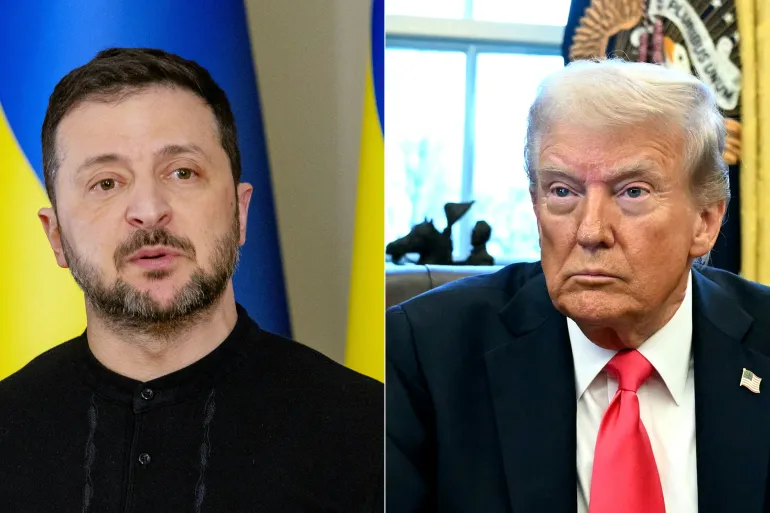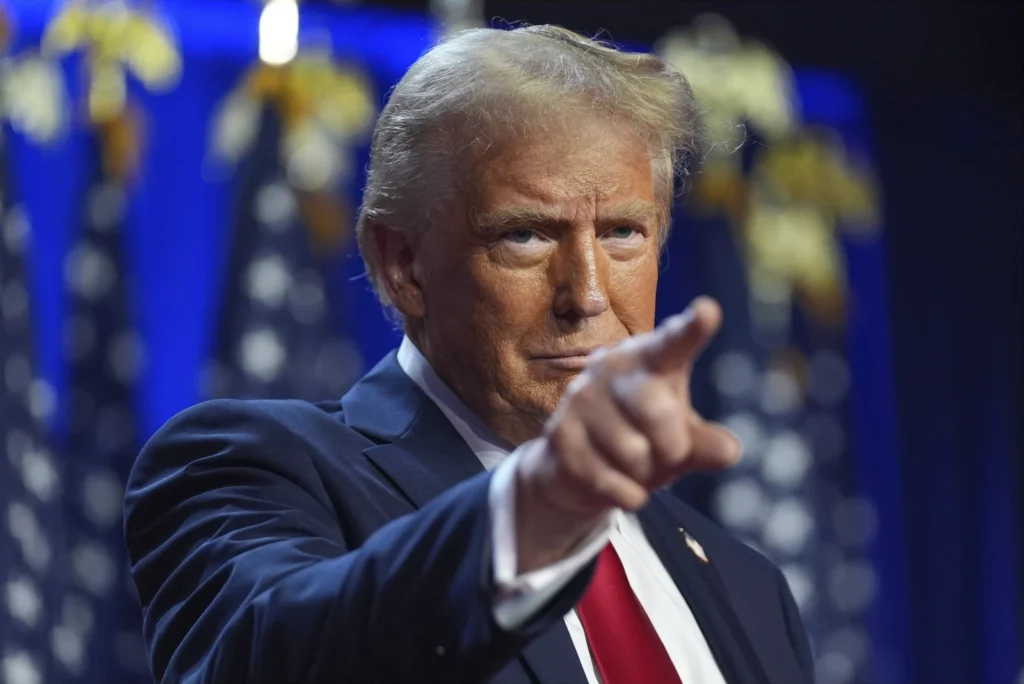President Donald Trump has announced that his Ukrainian counterpart is likely to visit the White House to sign a rare earth minerals deal to pay for US military aid to defend against Russia’s full-scale invasion.
Speaking to reporters in the Oval Office, Trump confirmed that he had reached an agreement with President Volodymyr Zelenskyy.
The announcement followed days of tense negotiations between the US and Ukraine.
“I hear that he’s coming on Friday. Certainly it’s OK with me if he’d like to. And he would like to sign it together with me. And I understand that’s a big deal, very big deal.”
Donald Trump
Trump said that the deal could be worth $1 trillion and will ensure that American taxpayers “get their money back, plus.”
He stated, “We’re spending hundreds of billions of dollars on Russia and Ukraine fighting a war that should have never, ever happened.”

According to reports, the new terms of the deal did not include the onerous demands for a right to $500bn in potential revenue from exploiting the resources, which include rare earth metals and Ukrainian oil and gas resources.
It was more favourable to Ukraine than the original deal proposed by Washington, but did not include references to long-term security guarantees that Kyiv wanted to receive in the deal.
The initial US proposal, which included a 100% financial interest in the fund to which revenues from the natural resource extraction would flow, had provoked outrage in Ukraine and other allies in Europe. “I am not signing something that 10 generations of Ukrainians will have to repay,” Zelenskyy said of the initial proposal.
Certain details of the deal remained unclear, including the US’s ownership stake in the new fund.
Asked what Ukraine would receive in the deal, Trump replied, “$350bn, military equipment and the right to fight on.”
“We’ve pretty much negotiated our deal on earth and various other things. We’ll be looking … general security for Ukraine later on. I don’t think that’s going to be a problem.
“There are a lot of people that want to do it, and I spoke with Russia about it. They didn’t seem to have a problem with it. So I think they understand they’re not going back. And once we do this, they’re not going back.”
Donald Trump
The revised deal, which now seems set to move forward, addresses some concerns, but it still carries heavy risks.
While it no longer demands the kind of excessive revenue extraction initially proposed, it does not provide the long-term security guarantees that Ukraine’s leadership desperately needs to ensure their survival against Russian aggression.
It’s clear that Zelenskyy, while securing a deal that will ease the immediate pressures of war, still faces a difficult balance between maintaining Ukraine’s sovereignty and ensuring the continued support of the US.
For Trump, the rationale is clear: this is a deal that could be framed as a win for American taxpayers, who have borne the brunt of financial support to Ukraine over the past year.
Yet, the implications of such a massive financial arrangement could be far-reaching. Ukraine, a nation already grappling with the horrors of war, is now being asked to stake its minerals.
While this might sound like a lifeline, it also introduces the prospect of exploitation that could leave Ukraine indebted.
Moreover, the US is stepping into a role that raises questions about the ethics of leveraging wartime vulnerability for economic gain.
The political and military support the US has provided Ukraine is crucial, but is it fair to compound that help with such a significant economic burden?
The deal, in many ways, resembles the kind of transactional diplomacy that Trump is known for, but it is not without significant moral and political cost.
The looming question is whether this deal represents a fair exchange or a modern-day version of imperialism.
While Trump frames the deal as a pragmatic solution for the American taxpayer, the reality is that it could further entrench global power imbalances.
The deal promises to help Ukraine fight Russia’s aggression, but at what cost to its future? Ukraine’s ability to forge its own path, free from outside interference, could be compromised for years to come.
A Way To Reset

Matthew Sussex, a visiting fellow at the Strategic & Defence Studies Centre at the Australian National University, said that the deal would give Washington and Kyiv “a way to reset after the recent war of words.”
“As I understand it, the US has considerably watered down its demands.
“That makes it more palatable to Kyiv, even though there is no security guarantee attached: essentially Ukraine gets nothing, but doesn’t have to give much either.”
Matthew Sussex
Trump’s outreach to Russian President Vladimir Putin and his verbal attacks on Zelenskyy have raised concern in Kyiv and European capitals that he is inclined towards bringing a swift end to the conflict on terms that favour Moscow.
The breakthrough comes as Ukraine is hoping to repair relations with the Trump administration amid tensions over his decision to exclude Kyiv from negotiations with Moscow to end the war.
For Ukraine, this agreement might seem like a necessary evil, but for the world at large, it may raise more questions than it answers.
READ ALSO: Iran Rules Out Direct Talks With US On Nuclear Issues



















